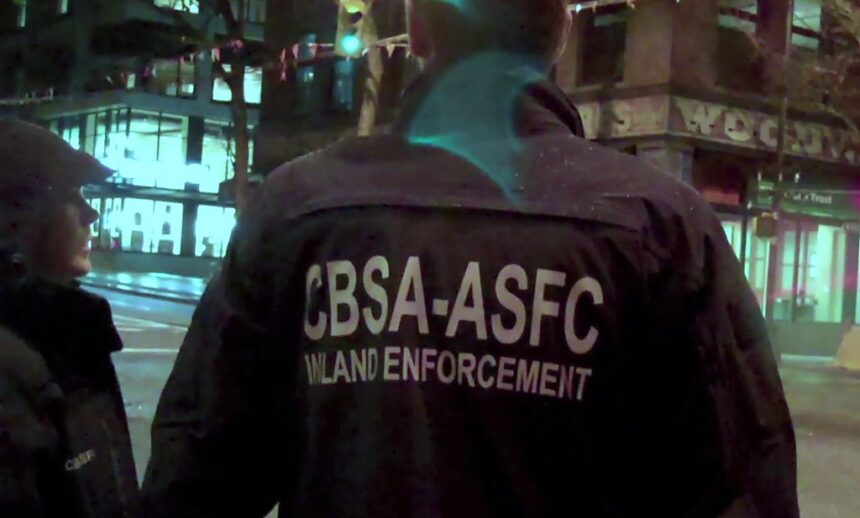The Canada Border Services Agency (CBSA) has confirmed that nearly 600 foreign nationals with criminal records who are subject to deportation orders are currently missing, including hundreds convicted of serious crimes. Of the 1,635 individuals facing deportation due to criminal convictions, 599 are now listed as “wanted” after failing to appear for removal procedures. Among them, 431 were convicted of grave offenses such as sexual assault and have disappeared from the system. Over 300 of these individuals have evaded authorities for more than three years, and dozens have remained out of reach for at least two years.
CBSA officials cite multiple obstacles in tracking these individuals, including the use of false identities and protection by associates or community members. While the agency maintains that criminals posing public safety risks are prioritized for removal, the challenge of enforcement remains significant. Presently, 401 foreign nationals facing deportation are serving sentences in Canadian prisons and will be deported upon their release.
Critics of the government’s immigration enforcement policies have raised serious concerns. Conservative MP Michelle Rempel Garner questioned whether the Liberal government’s lack of political resolve has contributed to the inability to locate and remove these individuals. Randy Hahn, from Lawyers for Secure Immigration, urged the government to adopt stronger enforcement mechanisms under the Immigration and Refugee Protection Act, noting that some individuals have been evading deportation for decades, including those convicted under the now-defunct 1976 Immigration Act.
The CBSA has also faced scrutiny over its evolving detention practices. Following pressure from provinces and human rights advocates, the agency moved away from using provincial jails for high-risk detainees and abandoned plans to use federal prisons. Currently, most immigration detainees are held in CBSA-run facilities in Laval, Toronto, and Surrey. However, these facilities have not been immune to security breaches. In a 2023 incident, three Chilean nationals suspected of being part of a home theft ring escaped the Laval holding centre.
Growing U.S. concerns have further intensified scrutiny. Earlier this year, former President Donald Trump accused Canada of enabling criminals to cross into the United States, leading the Canadian government to respond with increased border security funding. Ottawa has since invested $1.3 billion to reinforce its border enforcement strategy, expanded the CBSA and RCMP workforce, and listed several transnational criminal groups as terrorist entities.
The problem of deportation evasion continues to escalate. In 2021, there were 469 missing foreign nationals with criminal records. Previously, CBSA attempted to enlist public help through a “Wanted” webpage featuring photos and profiles of fugitives. The page, which once listed 159 individuals, was taken down in 2023. One such case involved Abdirahman Moumin Okie, an Ethiopian national convicted of forcible confinement and gang sexual assault, last seen in Montreal. The CBSA has since replaced the public list with undisclosed investigative tools.
Despite these changes, the whereabouts of hundreds of criminal foreign nationals remain unknown. The growing number of missing deportees raises serious public safety concerns and questions about the government’s ability to enforce removal orders effectively.

